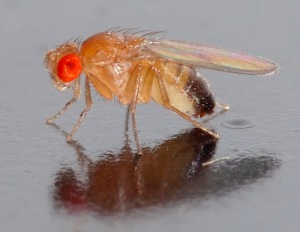Hilla Behar is a postdoctoral research fellow in the lab of Dr. Marcus Feldman. She received a Master’s Degree at Bar Ilan University in Israel and a PhD at Bar Ilab University, also in Israel. Her research focuses on recombination in infected populations.
This content has been transcribed from an interview that took place on Stanford campus Wednesday, November 11, 2015 with CEHG’s Director of Programs, Cody Montana Sam and Communications and Outreach Manager, Katie M. Kanagawa.
Can you tell us a bit about yourself, personally and professionally?
My name is Hilla. I did my PhD in the department of Mathematics in Bar Ilan University, Israel. I started my postdoc six months ago at Stanford University. My supervisor is Prof. Marc Feldman.
A little bit of background about myself: I was born in Israel and started my Bachelor’s when I was sixteen years old in Bar Ilan University in the Department of Applied Mathematics. I did my Master’s and PhD in this department as well. My advisor was Prof. Yoram Louzoun. We studied biological and ecological questions using mathematical models.
Can you tell us about your current research?

Together with my mentor, Prof. Marc Feldman, we are working to understand the dynamics of recombination in infected populations. It is known that Drosophila melanogaster plastically increase the production of recombinant offspring after infection. We built a model that describes this situation and we are trying to understand the dynamics of the model.
How did you first become interested in science and genetics? Were you interested in science as a child?
As a child, I was very interested in all the fields of science. I liked mathematics, physics, biology and computers. At the end of tenth grade, I was accepted to a special program in Bar Ilan University that allows high school students to study for their Bachelor’s in Mathematics. In this program, I finished my Bachelor’s in the Department of Applied Mathematics (magna cum laude). I also finished my Master’s (cum laude) and my PhD in this department. In Louzoun’s lab, I was exposed to different fields of research. The most interesting field in my opinion was Biology, especially Genetics. I decided to research genetic questions during my Post-Doc using the mathematical and physical knowledge that I acquired during my studies.
What are your future plans? Where do you see yourself professionally in the next 5 or 10 years?
My aspiration is to get a research position in a University. I hope that I’ll gain significant expertise in biology and genetics during my Postdoc. In the future, I want to do diverse research.
I think that one of the most beautiful and interesting things in my field, population dynamics and mathematical modeling, is the diversity. We can use models to answer very intricate questions from entirely different fields.
In the future, I want to run my own lab and guide students at the beginning of their research.
Were there people in particular to whom you would attribute your professional success?
The most important people to whom I would attribute my professional success are my parents. They believed in me all along. They knew to listen to me and encourage me. I remember my mother sitting with me in eighth grade and solving equations with me and teaching me the foundation of mathematics. My parents encourage me and believe in me all the way.
What is it like working with Marc Feldman and the Feldman Lab? Do you have labmates you work closely with on projects?
It is a pleasure to work with Marc and with Feldman labmates. I just arrived so I don’t have any collaborations yet, but I hope that, during my postdoc, I’ll have some collaborations with labmates and with other postdocs at Stanford.
What are the differences between the US and Israel? Have you enjoyed your time at Stanford so far?
I really like this University. I think Stanford is beautiful. I like the weather here, the students and the academic environment. I miss Israel very much. I especially miss my family and friends.
Do you have advice you would offer to undergrads, grad students, and postdocs working in your field (or thinking of working in your field)?
Believe in yourself. You can do whatever you dream.
A brief message from CEHG: This post wraps up CEHG’s 2015-16 Fellows Feature series. It has been a true honor and pleasure to get to know our fellows in interviews and throughout the editing process. As you have seen, our fellows are extremely talented and inspiring people. We hope you have enjoyed reading about their histories, research, and aspirations, as much as we have enjoyed writing about them.
Coming up: CEHG will be issuing an announcement, congratulating our 2016-17 postdoctoral and graduate student fellows via e-blast shortly. And a new series of features will begin in Summer 2016. Stay tuned.
